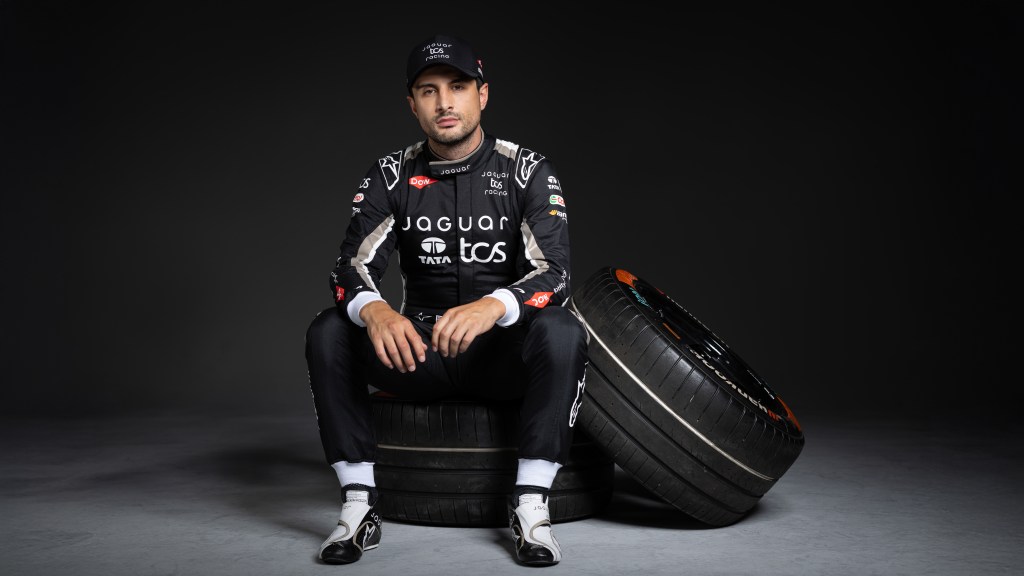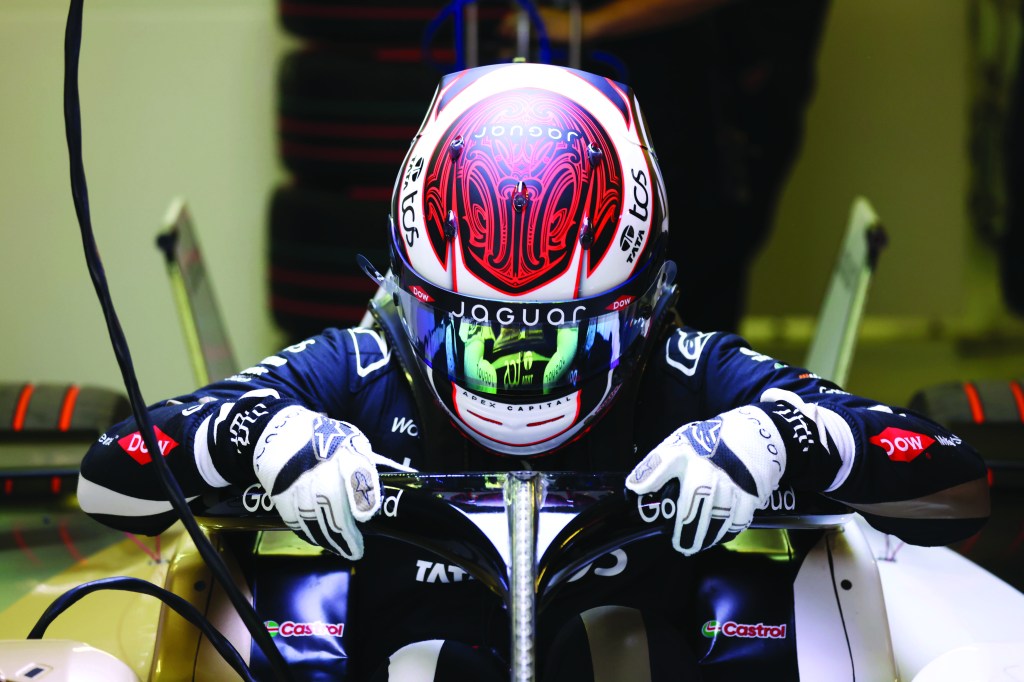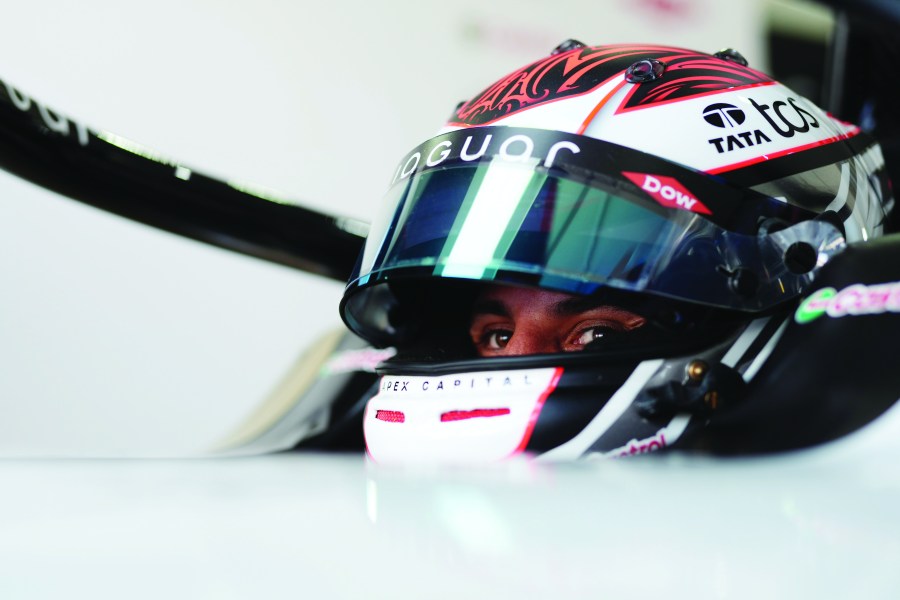Jaguar TCS Racing driver Mitch Evans is one of the fittest guys on the track. He talks fitness, results and making waves in Formula E
Mitch Evans has been with Jaguar TCS Racing since their debut season. The lightning-fast New Zealander has come close to championship glory in the past four years. He started his motorsport career in karts at the age of six and won the NZ Grand Prix at the age of 16.
Mentored by seasoned racer Mark Webber, the young Evans went on to win the 2012 GP3 title. Moving to GP2 in 2013 and at aged just 18, while still a rookie, he became the youngest driver in GP2 history to stand on the podium after finishing third in Sepang, Malaysia. He began his all-electric racing career in 2016 ahead of Panasonic Jaguar Racing’s debut season, with the New Zealand driver’s first season marked by a fine fourth-place finish in Mexico.
Men’s Fitness caught up with him before the final race of the season to talk results, Formula E and fitness.
How has this season gone for you?
I started the season well in Sao Paulo back in December, winning that race. But then a hit a seven-month period where I’ve not scored a single point, which is very unusual. So, it’s been a really painful season for me. Hopefully Berlin is a turning point, to get some points on the board for the team was huge. But personally to get a win – my second of the year – was great. Conditions were really tough but we executed the race strategy really well. Hopefully we can continue this momentum and build a really strong foundation for the 2026 season.

How will you and the team reflect and build for 2026?
In terms of the results we’ve achieved this year, it’s not been purely based on performance. We’ve had some technical issues when we’ve been in decent positions on the track. But, compared to the last two seasons, we’ve not quite headed the way that we would have liked. I think we’ve also had just tremendous bad luck this year and, in any sport, you need a little bit of luck to go your way. So, we need to just keep evolving and finding the right performance window for our new car.
How do you keep motivated to push for wins when things are not firing on the track?
It’s been tough. It’s the first time in a long time that I’ve been in this position. I’ve had a few really strong seasons, and I’ve just missed out on the title on a number of occasions, which is frustrating but also motivating. All of which has made this season more unexpected. Your focus shifts quickly from winning the championship to finding a way to get out of the situation. I wouldn’t want to do it every season, but I think sometimes, you can go down a certain path and you can either let it get to you – or it can be the motivation to get yourself back to the top.
Your entry into motor racing was fairly conventional – karting, GP3, GP2 – and yet you chose Formula E as your career. What was your motivation for this?
My goal ever since I was young was to drive in Formula One. Once I started driving in GP2 I was fully focused on making that next step. I was meant to be testing Formula One that season but, unfortunately, like a lot of other drivers, politics get gets in the way. After a good season in GP2 in 2013, 2014 was my best shot to get there but I missed my chance getting the testing and the rest, as they say, is history.
You’ve almost completed 10 years in Formula E and the sport is growing exponentially. How do you see the sport evolving and can it rival Formula One?
My management got a call for Jaguar in 2016 saying they were going back into motorsport with Formula E. I was at a crossroads in my life and it was an interesting opportunity. A big manufacturer like Jaguar going into electric vehicles was a big incentive and I thought ‘well, this could be the future’. I’ve been with the team since its inception although it wasn’t until season five when I got my first win. To deal with the same team for so long is pretty wild but we’ve achieved some amazing results together. The only thing that’s missing is the drivers World Championship, but we’ve got pretty much everything else. It’s been an amazing journey.

What do you think has changed in the public’s perception of the sport?
At the start, a lot of people were on the fence. It was new technology, a new way of racing. Motorsport has traditionally been noisy, very noisy! But it brought in a whole new audience. And the interest continues to grow. I think there a number of factors behind that. Obviouslt the cars getting a lot faster, the technology is cutting-edge, but also the level of the drivers is arguably the best in the world, or very close to being the best in the world. Ultimately, I think the racing is very exciting, wheel-to-wheel combat.
Fitness is an important factor to remain competitive. Have you always followed a fairly structured fitness regime?
I’ve been training since I was 11-years-old. I got into fitness early because I knew the importance of it, and I always wanted to be ahead of the game. I’ve narrowed it down to what works for me. So I’m very much into my cardio – running is my thing because it’s so accessible and easy. I’ve also done quite a bit of cycling in the last few years. I used to do a lot more strength work when I was in GP 2 – there is no power steering, which requires a lot from the arms and the neck. There is also no power steering in Formula E which means the steering is extremely heavy. So, I focus on full body work, with particular attention to the arms because of the lack of power steering.
How do you maintain intensity and fitness levels over such a long season?
At the start of the off season, I tend to try and enjoy myself for a few weeks. I’ll try not to think about racing or training at all as the season is so intense. We start private testing in September and October and official testing is in November and first race in December. I want to be in good condition for that first race, and, once the season starts, I just try and do some maintenance. The most important thing is, once I get in the car, I want to be as fresh as possible, so I tend not to do too much in the week leading up to a race. Some other drivers train throughout the week, but for me, it’s very important to sleep right to make sure I’m performing well and to optimise my performance on race day.
What’s the best piece of fitness advice you’ve ever been given?
One thing that I was obsessed with when I was younger, whether I was running, in the gym or swimming, was that I had to be doing personal bests all the time. And I actually ended up getting chronic fatigue from that because I just burnt myself out. I – wrongly – thought that every time I was doing exercise, I had to be on the limit. I realised that building a base by exercising for longer with a lower heart-rate was far more beneficial. So my advice would be – not every session has to be flat out.






